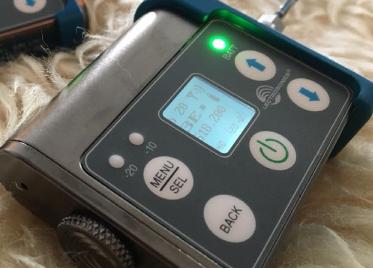RF Science or Sorcery! |
||
In short... BOTH. Not really but sometimes it sure feels like its a whimsical being hell bent on raining ruination upon our lives or rainbows and unicorns bestowing the blessings of an awesome day! The first thing to understand is that there is no guarantee of success and all we can do is place ourselves in a position that affords us the greatest opportunity for success. That comes with knowledge, experience and professional equipment. It is not unusual to have the most trouble in some of the least likely remote areas. Standing in a farm field with nothing but crops as far as the eye can see and a total wash out over six blocks! Yep, alien mischief is afoot. I view RF as a worthy analogy of our overall treatment as sound professionals. Most people have a hard time distinguishing good sound but know bad sound when they hear it. Imagine being in the RF business (as a sound mixer you’ll get this) and for the most part what you hear about are all the RF problems mixers encounter. (If it bleeds it leads...) For most of us, it is likely the largest monetary investment in gear and it truly does define whether we’re enjoying a wonderful day at the office or scrambling trying to sort out troublesome wires. I fancy myself a 16th century naval navigator on the high seas with my carefully guarded charts of the oceans. Not all good frequencies are created equal in any given location and walk testing them can really separate out exemplary freqs from the ordinary ok ones. When that happens.... Write it down! RF vampires do exist and are really quite real! Garlic however does nothing to aide with this phenom and just leaves you oddly alone at lunch. Instead, carry small straws that you can cut and place on the transmitter antenna which will help prevent the RF sucking vampire from feasting endlessly upon your signal (soul). Sam Champion (formerly of ABC’s Good Morning America) had horrible issues with IFB’s. It didn’t matter if we were in Detroit or Niagara Falls the minute you placed a well tested receiver on him he’d hear a radio station. More is not always better, in fact it is often worse when it comes to RF. Throwing up shark fins 10 feet away from a 1/4 watt transmitter will likely leave you scratching your head as the front end over loads with too much signal. One of the challenges we face is a lack of understanding about RF by others on the crew and failing to allow for proper time to coordinate your setup on site. In theory we can get an idea remotely on how to coordinate but until you are physically standing on location you can’t possibly know of any RF poison pills that are hovering around your set waiting to pounce. It is science but we are at the mercy of unseen obstacles that permeate the ever more crowded world of RF that we wade through daily. I’d say that within the next two years most of us will need to have spectrum analyzers to help facilitate a quick and speedy appraisal of our RF needs. Thom Shafer |
||||||||||
 |
||||||||||
Lectrosonics SMWB Wideband |
||||||||||
"Being a great mixer is knowing what sounds good and what doesn't as it applies to the situation you find yourself in..." - Thom Shafer |
||||||||||
Thom Shafer - Location Production Sound Audio Mixer Cleveland, OH, Columbus, OH & Pittsburgh, PA |
||